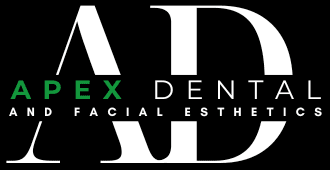Biting fingernails is a common habit. If you bite at your nails, you may know that this is unhygienic and harmful to your fingernail health. But this behavior can pose many dangers for your teeth and gums too.
Kicking a habit can be hard to do, but knowing the exact threats this behavior creates for your smile can encourage you to stop it. Your dentist can provide tips to help you cease poor oral habits like nail-biting. In the meantime, you can read on to find four oral health concerns that may develop if you continue to bite your nails on a regular basis.

Dental Risks from Biting Your Nails
Tooth Breakage
Your teeth are durable: built to grind, chew, and bite regularly without consequence. But especially hard items might generate pressure on your teeth that could cause them to chip, crack, or fracture.
Broken teeth will disrupt the look of your smile, but they also create a vulnerable spot in your tooth where bacteria and other dangers can infiltrate. To prevent further harm, you will need to seek urgent repair for your teeth.
But ideally, you should preserve the natural structure of your teeth for as long as possible. To do this, you should stop biting your nails, along with other harmful habits that may break your teeth.
Dental Work Damage
The pressure of nail-biting can hurt your existing dental work as well as your teeth. If you have porcelain veneers, dental crowns, or fillings, biting on hard items could cause these fixtures to chip or become loose.
If this occurs, then the seal that protects sensitive parts of your tooth under the dental work breaks. Plaque and other threats can then access your tooth, putting your dental at risk. Get the most out of your dental work and avoid costly repairs or replacements of dental fixtures by ceasing your nail-biting habit.
Teeth Misalignment
When you bite your nails often, the pressure may affect your teeth’s position along with their structure. Biting on a hard item regularly can push on your teeth so that they become crooked, overlapped, or gapped. You might also push your jaw forward to create an overbite or another malocclusion.
A dentist can address minor alignment concerns with Invisalign. But if you have severe bite problems, you might need to see an orthodontist. Protect your straight smile by stopping nail-biting.
Oral Infections
Biting your nails will bring the germs you collect on your hands to your mouth. Not only could this make you sick, but it could hurt your oral health too. You might heighten your risk of oral infections by introducing excess bacteria.
This could mean you contract gum disease, an infection in the gum tissue, which can advance deep into the jaw to cause major dental damage. Your sharp nails may accidentally nick your gums too, and bacteria can more easily enter the gums through these cuts. You will need a dentist to treat this disease, so avoid this complication by stopping your nail-biting habit.
